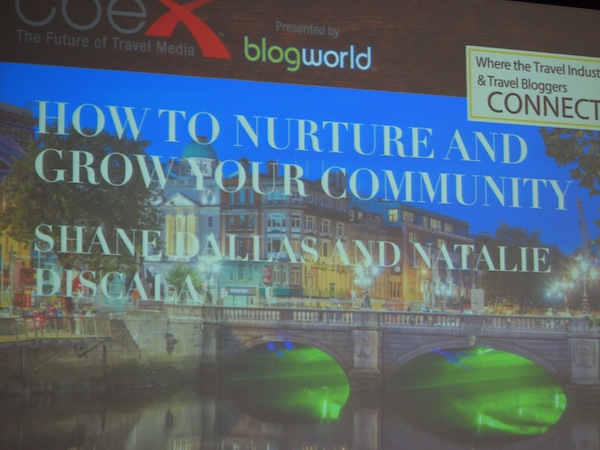“When you are good story teller, you are always relevant.” (Diane Letuile, Culinary Travel)
It seems I have stuck with opening my TBEX Travel Bloggers Exchange conference blog posts using what I consider great quotes by the speakers. “The beginning has to draw the reader in. … Something momentous that is happening right now. In the rest of the story, bring the reader up to the travel experience you are living, so they are impelled to go with you on that particular journey. Starting with quotes is a fine idea: It pulls the reader in immediately and reveals the character of a place.” Dear Don George, oh how I could listen to you again and again. Thank you once more for sharing your (rather intimate and often very personal) knowledge of great travel writing with us at TBEX in Dublin. I really must buy your “Lonely Planet’s Guide To Travel Writing” – and soon!! The following summary is an homage to what I have learned from you, and here is how I would like to share it with everyone else so we can all keep benefitting.
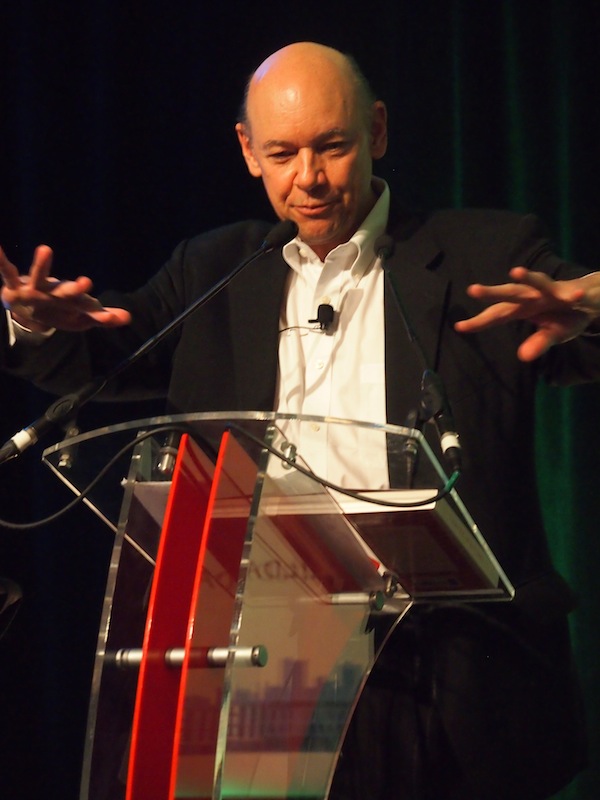
Don George compels us with the charisma of being a clear leader in his field: The art of (great) storytelling. Check out his website at http://www.don-george.com.
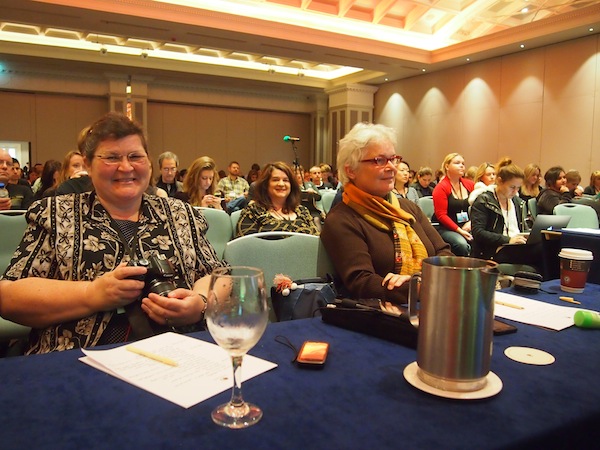
A session to remember: Avid listeners engaging in a good 20-minutes interactive talk with the speaker towards the end of his session, which provided us with extra values and insights into the work of Don George. Thank you so much for this inspiring travel talk at TBEX Dublin!
Creating Engaging Quality Content Online: Global Travel Editor for Lonely Planet & Author of “The Lonely Planet’s Guide To Travel Writing” Don George shares his artistry with us: Travel Writing Reloaded.
Engaging yourself, your audience, the place you travel to and the work you create are the four elements that always interweave in the creation of content for travel writing. Don George begins his talk by mentioning the “four stepping stones” when it comes to successful (online) travel writing. So how do you start in the order of things?
1. Before a trip, his advice is to research the destination as much as possible: In doing so, you maximise your time on the ground before actually travelling there. Questions to ask are: What excites me about this particular place? What do I want to follow up with? What are my “passion points” in this particular place? These points of (personal) connection then become the stepping stones of the story. Sketching out a skeletal itinerary, you get a blueprint for the sense of purpose to be in that destination. This is the pre-trip research, and it applies equally well to writing for news magazines or for online travel writing / blogging.
2. Once you are on the ground, keep asking: “What is the story here? What are the essential characteristics here? What is the secret here?” In Dublin, it could for instance be Guinness and Cider. 😉 Another tip Don gave is to “vacuum up information: Grab brochures, information, etc. Find a café, pull up your journal and laptop and write about what is around you, your thoughts, your feelings, your tastings, etc. These notes will prove really helpful in writing up your story later.”
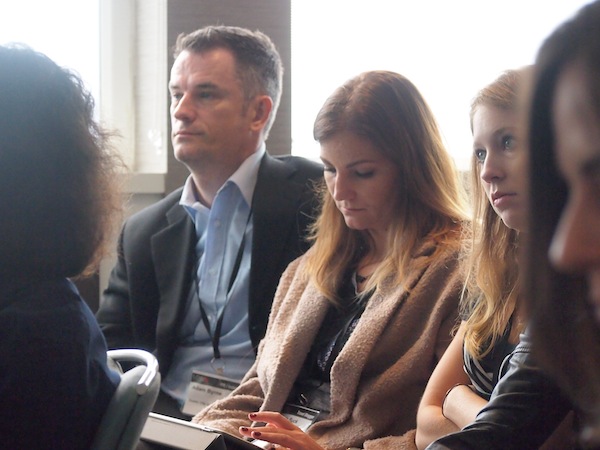
“Vacuuming up information” is clearly what TBEX Dublin is all about: Listening in closely during the conference sessions.
One of the secrets we learn from Don George about the art of good travel writing is : Details, details, details.“The small truth that illuminates the larger truth. … The scent of an Italian restaurant. The way a woman swings her scarf over her shoulder in Paris. The proliferation of bookstores … Deatails clearly are what bring a story to life!”
3. The third stepping stone for good quality travel writing is to ask yourself the question: “What am I learning here?” To that end, we are advised to record sentences or dialogues that communicate something about a place and enliven the story. After the trip is over, as a writer you should ask yourself: “What did you learn? And how did you learn that?” This gets to the heart of the travel experience.
“90% of good travel writing is the recreation of a lesson learned in a place.” (Don George, TBEX Conference Dublin 2013)
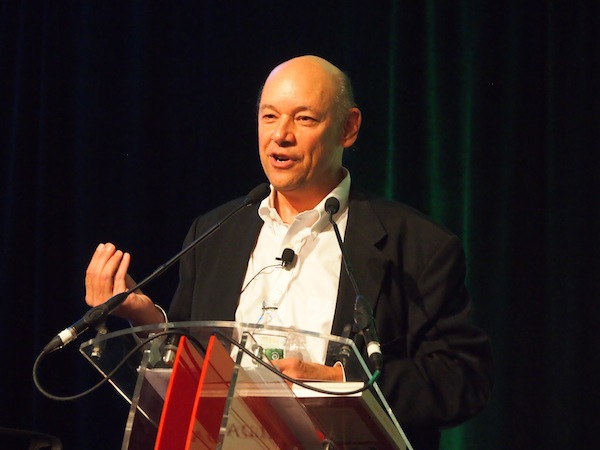
Glued to what Don George has to say about travel writing .. Clearly, he is one of the leaders in his field: I feel very honored to be sitting in on his “pearls of wisdom”. 😉
As a writer, you need to know your point. What do you want your reader to take away? You have to know that first & foremost. Becoming a good self-editor is also important. To that end, bear in mind: Is this particular piece of information / angle / detail relevant to my point? Should I save it for another story? Does the reader need to know that now, or possibly later? Stick to the stepping stones in the story. In doing this, use humor. Dialogues. Senses. Humour whenever you can, especially self-depricatory that makes the reader smile, feel, engage. 😉 Always keep in mind that you as an author should only share so much with your readers that it helps THEM to understand a place or experience.
Finally, Don gives the advice that you should read your piece of writing out loud. “What is your use of alliterations, of words and rhymes? Put out your story with music, and as felicitously as you can! And then, go away from a piece for a while and come back to it – perhaps with somebody who can give you (professional) feedback. It will really help you improve your writing.”

Here is another team that have clearly, already mastered the art of storytelling for many years: Audrey Scott & Daniel Noll from Uncornered Market charm us with their insights and story about their approach to travel writing during TBEX’s closing speech.

Last but not least, here are three tips concerning good quality, engaging & captivating travel writing based on questions asked by the audience at TBEX Dublin (c) Don George: www.don-george.com.
- How do you balance travelling and writing? Ideally, you would take a really great trip and have some weeks to write about it … The truth is that it never really happens that way. The best advice is to take a lot of notes on the ground that help you bring out details in the story later on. Professionally, it may be hard to balance work priorities, travel research and later write-up of your stories, but you will have to learn to balance that.
- How do you go about building a truly captivating travel story? What you learn about a place illuminates something about yourself, and vice versa. For the reader, the payoff has to be “a complimentary revelatory experience” of what you learned on the road. Use the most magnificent anecdote you want at the end of your story: It does hence not necessarily have to be a chronological order of travel sequences.
- What is the ideal length in online travel writing? A “congenial length” would be from about 500 – 750 words online. A longer piece online would be about 1500 words. But it is about the story, really: So much of it is really in the writing. Every writing has to have a coherent relation to what it is you are trying to say – experimentation is good, but stay to the “red thread” in the storyline.
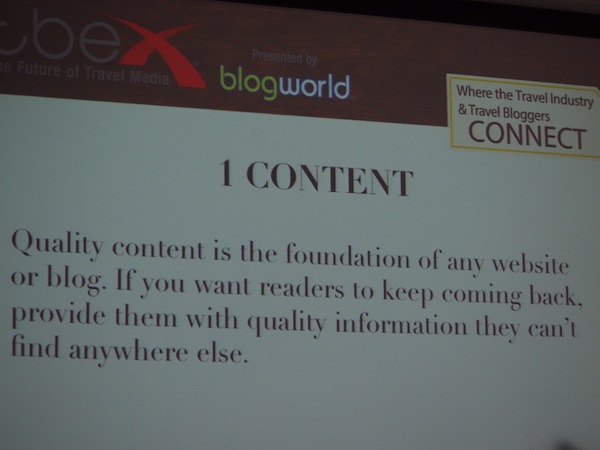
We follow another interesting session about community building and travel writing online here: Content, as we learn, is “king over everything else.” So true!
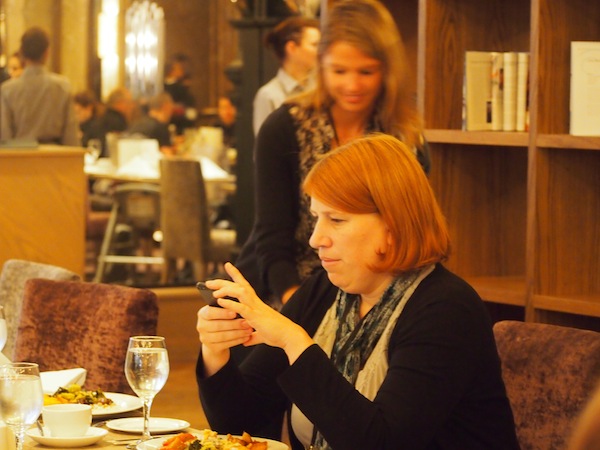
The networking (fun) continues: During lunch, too, information keeps being shared, bloggers networking with each other and the travel media at TBEX Dublin 2013.
So what is there possibly left to say after all these wise words above? Diane Letuile has something to add about the “art” (and grace!) of discussing culinary tourism. I am a real fan, already ahead of the session – culinary travel being one of the greatest sections I report about on my travel blog here! While we are discussing a form of niche travel, some of the following clearly applies to all kinds of travel writing. Diane has this to say & share with us.
“We are fetishising food – note the endless use of #foodporn – so I am asking myself, what is there left to say? Are we relevant, or redundant? If you take culinary blog/press trips, you need a lot of information that goes with it in order to continue to write informatively. Information about spelling and specific local particularities is a must. As with every other category, checking your facts is very important, too.
When writing about food, write about new ingredients. Unveil new destinations. (“I had one of the best meals of my life at a little taverna in Zagreb.”) Focus on interesting people. Make your photographs dazzling (“It really is an art.”). And: Today more than ever, the quality of the writing matters (“You can’t just write about food. You have to write it really well.”).”
As the saying goes, I quoted Diane above already. And would like to use this phrase again to conclude my story here. Does that go with what you should or should not do, dear Don? 😉 As for now, I shall put it nonetheless: “When you are good story teller, you are always relevant.” YES to that!
Thank you everyone for making TBEX Dublin 2013 a reality. It was an amazing inspiration for me to come, and you shall see me again somewhere on this beautiful planet Earth!



